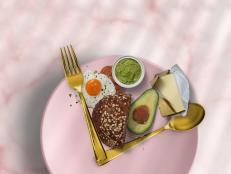Anti-Diet Isn't Anti-Health
This way of eating doesn’t mean an endless supply of doughnuts, cupcakes and French fries.

guruXOOX
The healthiest diet you can be on may not be a diet at all. The anti-diet movement, a diet that doesn’t follow a specific eating plan, was one of Pinterest’s top wellness trends last year.
Despite the name, the anti-diet movement doesn’t mean anti-health. While there aren’t any rules to follow, specific calorie counts or over-arching dogmas, it’s still rooted in health. The difference, compared to traditional diet plans, is the emphasis on positive behaviors like eating nourishing foods that feel best for your body, practicing self-care and exercising for enjoyment.
Eating well isn’t about restriction, measurements or rules. While many popular diets are touted as lifestyle changes instead of a diet plan, they all require some kind of adherence. The anti-diet movement is opposite; if focuses on making peace with food, removing the power that food and food rules have and allowing you to enjoy cravings as they come up- guilt-free.
Anti-Diet Works For Everyone
Anti-diet health behaviors work for everyone, whether you are trying to lose weight or not. Not following a specific diet plan means you are more likely to practice intuitive eating; eating according to hunger/fullness levels, desires and removing any guilt around those choices. Sounds radical, but it works. Researchers at Brigham Young University found that people who scored high on an intuitive-eating scale not only had less anxiety about food and got more enjoyment from eating, they also had lower BMIs.
It's Not a Diet Free-For-All
As anti-diet is based in health, it doesn’t mean that you can eat whatever you want, whenever you want. Instead, the focus is on satisfaction. Intuitive eating, the core of the anti-diet movement, gives permission to eat the foods that you crave in a mindful way. It encourages you to focus on your body’s needs and choosing foods that are both physically nourishing and satisfying. It’s why you won’t end up eating burgers, cupcakes and donuts all day long. While those foods might feel good initially, they rarely make us feel great long-term.
Instead of strict ‘can-and-cannot’ lines, ant-diet allows you to focus on what foods make you feel your best, which are more likely to be nourishing foods. That’s the irony about going on an anti-diet; once you realize you can eat whatever you want, you probably won’t.
For anti-dieters, the focus is on behaviors, not numbers. It’s a more holistic approach to eating, knowing that health includes acai bowls, kale salad and yes, even the occasional burger and slice of pizza.
































